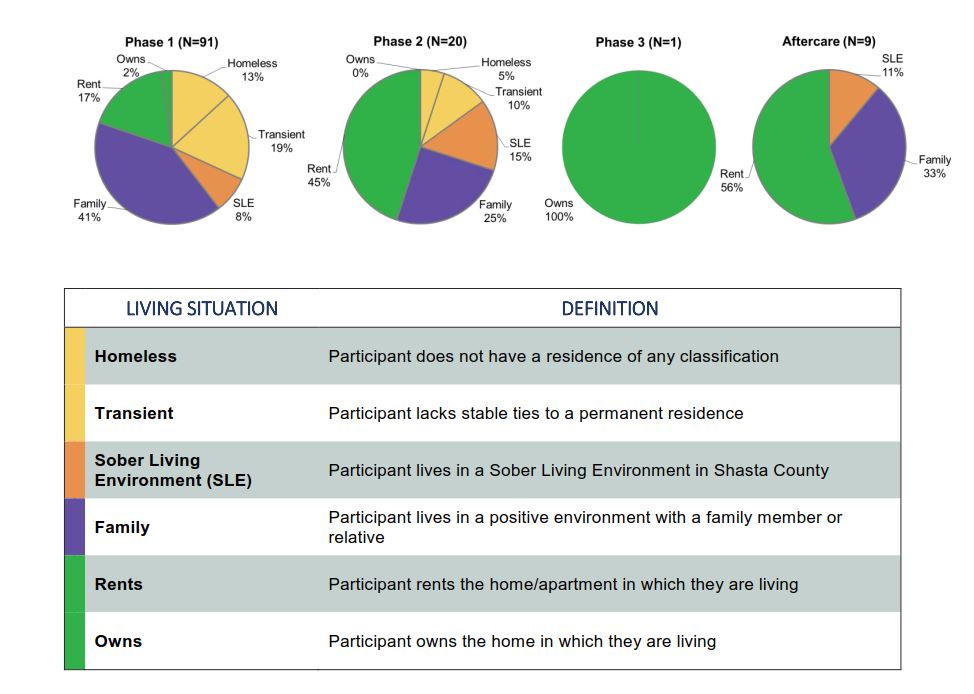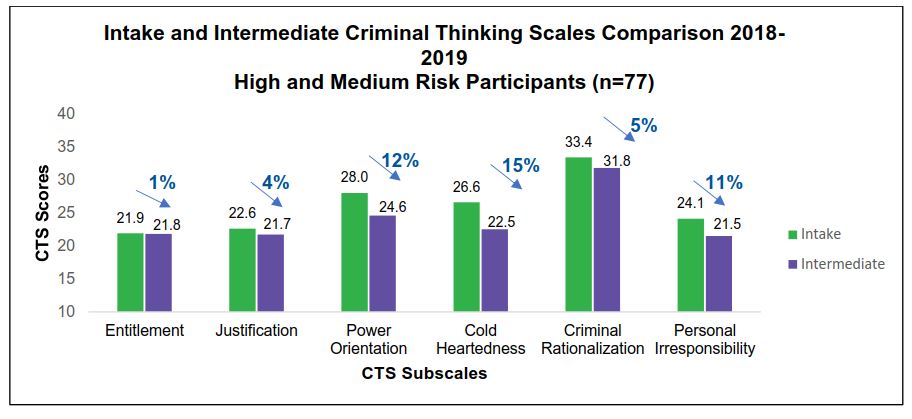Shasta County Day Reporting Center in Redding, California, hosted an open house event on May 23 to mark its six-year anniversary and share findings from a newly published report on the DRC’s impact in the community. The open house provided an opportunity for community members to tour the center, learn about the reentry program and speak with staff and participants about their experiences at the DRC. Program Manager Danielle Gehrung also spoke to attendees about the history of the DRC, its role in Shasta County and data released in the 2019 report.

The 2019 annual report published by GEO Reentry Services includes details about the reentry services offered at Shasta County DRC and evaluations of their outcomes according to a variety of factors, including attendance, sobriety and employment. The report considers both behavioral and environmental factors contributing to participant progress and recidivism risk.
An example of an environmental risk factor is housing stability, which can play a significant role in whether a participant succeeds in the program. According to the report, 39 percent of participants were identified as homeless or without permanent residence when they first started at Shasta County DRC. By the time they graduated and started aftercare, 100 percent of participants reported stable living conditions, with the majority (56 percent) identified either renting or owning their home.
“The DRC has helped me out by giving me resources,” Jacob F., a participant at the DRC, told KRCR News. “They provide with job [s.i.c.], they provide me with housing. They’ve given me an opportunity to grow and succeed in life.”

One of the promising results outlined in the report is the decreased risk in criminal thinking patterns according to intake and intermediate assessments using Texas Christian University Criminal Thinking Scales (CTS). For example, feelings of cold-heartedness were lowered by an average of 15 percent; personal irresponsibility decreased by 11 percent; and power orientation, or the need for control, reduced by 12 percent. The elements evaluated in the CTS are widely used for determining an individual’s risk of recidivating—the lower the score, the less likely they are to reoffend.
These statistics, among other findings listed in the report, are a direct result of the reentry services and pro-social events provided to participants based on their individual needs. Operated by GEO Reentry Services, Shasta County DRC provides evidence-based programs like cognitive behavioral therapy, substance abuse treatment, anger management and parenting classes.
As part of the reentry program, the DRC also hosts community events to help participants successfully transition back to society. In April, Shasta County DRC organized a Work Readiness event in collaboration with Shasta County Health and Human Services to connect participants to valuable employment resources. The event helped attendees prepare for an upcoming job fair by providing them the tools and support to succeed, such as guidance with interview attire and mock interview practice.
GEO Reentry Services encourages program graduates to stay in touch and reach out when they need assistance. Many program alumni stay active in the program by volunteering to mentor current participants. This mentorship helps current participants by giving them a point of contact for support outside the DRC. They can also benefit from seeing others who have succeeded in the program, showing true change is possible. For program alumni, being a mentor is a rewarding experience and gives them an opportunity to be a leader and a role model.
